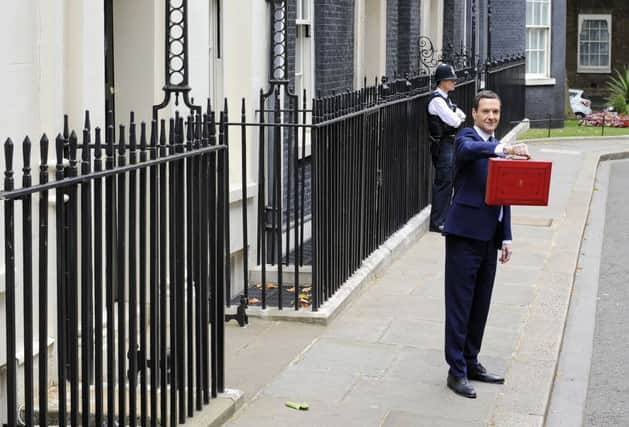Osborne overhauls tax system to boost coffers


Chancellor George Osborne’s unveiled a package of measures set to bring billions of extra revenue into the Exchequer.
Anyone living in the UK for 15 years will be consider UK-domiciled for tax purposes, effectively ending permanent non-domiciled status.
Advertisement
Hide AdAdvertisement
Hide AdRules will also be amended from 2017 to stop wealthy individuals using offshore trusts as a means of avoiding inheritance tax on UK property, the Chancellor said.
The Government has clamped-down on ‘carried interest’, a loophole used by fund managers to avoid paying capital gains tax against fund profits.
Those affected must pay the full 28 per cent capital gains charge without using tax planning to reduce the value of profits, with immediate effect, HM Treasury said.
Individual shareholders will also see tax treatment of dividends overhauled, with the current Dividend Tax Credit abolished and replaced with a £5,000 Dividend Allowance.
Advertisement
Hide AdAdvertisement
Hide AdFurther wide-reaching reforms for everything from pensions to car tax and buy-to-let relief put tax at the centre of the first Tory Budget since 1996.
Experts said the package of measures went further than expected.
Rob Peers, tax partner at EY in Yorkshire, said: ““The Chancellor resembled ‘Michelangelo’ as he re-sculpted the UK tax system, taxing dividends, proposing changes to pensions, adding a new tax on banks, cutting corporate tax rates and restricting interest relief on buy-to-let investments.”
PwC tax partner Gordon Singer said the changes for non-doms “weren’t unexpected”, but were a “game changer”.
Advertisement
Hide AdAdvertisement
Hide AdHe said: “Non-doms who face tax rises or complications as a result of the changes have a simple choice: get their affairs in order or prepare to leave the UK.”
Stephen Hall, personal tax partner at Deloitte, said the dividend measure is expected to raise £2bn per annum.
“Those receiving most of their income as dividends, rather than salary, will be particularly hard hit,” he said.
“The latest proposals do add a further layer of complexity to the system, replacing one set of ‘non-standard’ rates which applied to dividend income with another.”